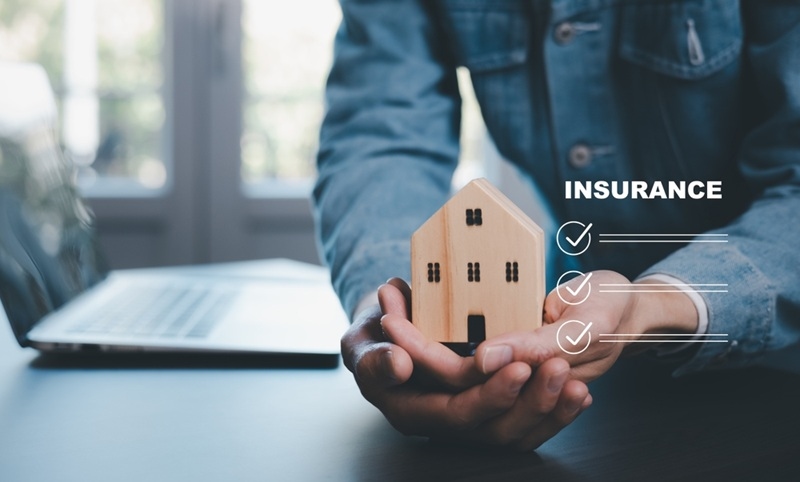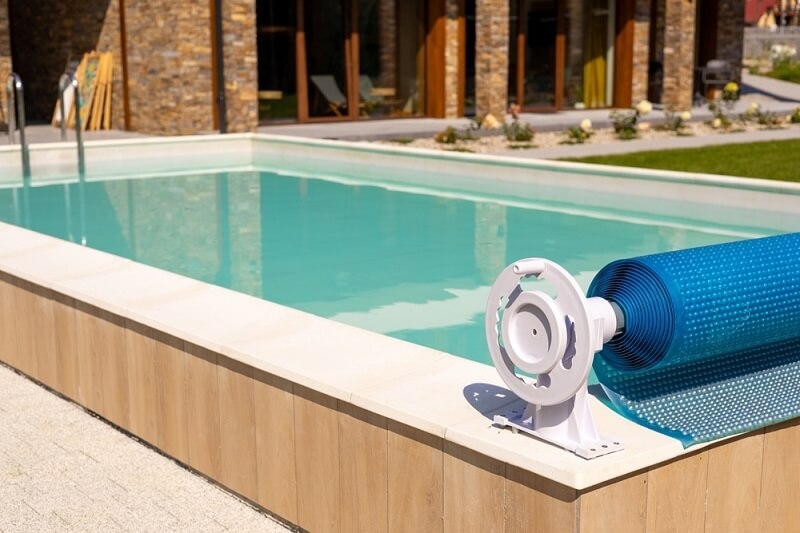Top 3 Reasons Why You Should Get Home Insurance Right Now
Top 3 Reasons Why You Should Get Home Insurance Right Now


Home insurance is a necessity for many potential home buyers. Unless you have tens of thousands of dollars set aside to repair or rebuild your home in case of a catastrophe, getting this type of insurance is advisable. But there are so many different types of insurance policies that make it challenging to know which is the best one for you. Many people are unaware of what exactly homeowners insurance covers and what situations it does not cover. Many people have false beliefs about home insurance, and this article will put those minds at ease. Here are the top three reasons why you should get your home insured. Let's begin:
1. Protection Against Loss
Homeowners insurance is a risk coverage that protects against loss from a natural disaster or other catastrophic events such as fire, flood, or earthquake. Your home insurance will cover the cost of repairs or rebuilding your home.
2. Covers Possesions
Certain insurance policies cover the cost of replacing and repairing valuable or luxury possessions if they get damaged or stolen. This means that if your expensive furniture or appliances get damaged or destroyed, you can claim money from your insurance company. Before you get a policy, make sure you know what kind of coverage it offers and if it covers the cost of replacing your possessions.
3. Third-party liability coverage
Most homeowners insurance policies cover third-party liability coverage. It means you won't have to foot the bill for anyone's medical care if they sustain an injury in your home. If someone is injured on your property and decides to sue you, this insurance policy will cover your legal expenses. If you don't have insurance, you will have to pay the medical bills out of your pocket. This can be a huge burden, and that is why third-party liability insurance coverage is so important.
How to get the best home insurance deal?
Be sure you're obtaining the best coverage possible for your money by taking the following additional measures:
Be prepared.
Your mortgage lender can insist that you get home insurance (and may even have a list of preferred insurers), but they cannot force you to select any particular insurer. Get price estimates from no less than three different insurers. Your company, credit union, or membership organization may also provide you with access to lower rates.
Be updated with your agent
Knowing what your existing insurance policy covers is essential before you start shopping around for cheaper options. The insurance industry has made efforts to simplify its policies, but the renewal packets still tend to be lengthy and difficult to understand. Lynne McChristian, a visiting scholar at the Insurance Information Institute, recommends starting with the declarations page, which serves as an overview of your policy. Then, read the policy's exclusions to find out what exactly isn't covered.
"You can't just blindly assume that your insurer has sold you the correct coverage," says Amy Bach, executive director of United Policyholders, a nonprofit group in San Francisco that helps consumers with insurance difficulties. Therefore, you must always cross-check in detail with your agent regarding all the clauses and ensure all your needs are covered.
Take advantage of all discounts
Homeowners can save money through discounts from their insurance company for paying their annual premium in full or retaining the same policy for more than three years. Check with your agent to see whether you're receiving all the discounts you're entitled to when you're on the phone with them.
Specific policies include various opportunities for discounts. In case you have replaced your roof or windows within the past year, if you have installed smoke detectors and fire extinguishers, or if you have done other energy-efficient modifications, you may be eligible for a discount.
Increase your current deductible
A higher deductible usually results in cheaper monthly charges for car insurance. For example, a premium increase of $500 to $1,000 might result in a premium reduction of up to 25%. Consider the expense of repairs or other potential difficulties leading to a claim when deciding on a premium amount. Avoiding even minor claims might have a significant impact on your premiums. McChristian notes that many people have a $1,000 deductible but wouldn't file a claim for $1,000 in damages. You can raise your deductible "if you're not planning to submit a claim for that amount."
However, your deductible shouldn't be more than you can comfortably pay out of pocket. You should discuss the potential increase in premiums if you raise your deductible with your insurance provider and only do so if you have a sufficient emergency fund to cover the cost.
Look into getting flood insurance
Most homeowners' insurance policies don't cover flood damage, even though it's the leading cause of property loss. Homeowners in flood zones are often required by their mortgage lenders to buy flood insurance, but it's a smart idea regardless of whether or not your property is located in a flood plain. Homeowners should know that flooding is the leading natural catastrophe risk in the United States, according to McChristian. There's a growing potential for flooding, as they say.
Insurance against flooding is substantially more affordable in regions not in high-risk flood zones—properties outside areas at high risk of flooding account for 20 percent of all flood insurance claims. If you require flood insurance, you can do it through the National Flood Insurance Program or a private insurer.
Do window shopping once every few years
Check with other insurers sometimes to make sure you're still getting the best possible pricing once you've mastered your current policy and are receiving all applicable discounts.
When it comes to pricing, different businesses have various underwriting rules and additional parameters. In some regions of the country, insurance companies are fighting for your business by offering meager rates. Don't just look at the cost while comparing insurance policies. To be sure you're comparing like policies, it's a good idea to get a copy of each one and read over it. When you find a lower insurance premium elsewhere, contact your current insurance company to ask if they would match or beat the new rate.
Strengthen the safety measures in your house
Consult with a company rep or insurance agent about making your home more secure from windstorms and other hazards. Investing in storm shutters, reinforcing your roof, or upgrading your roofing materials could reduce your premiums. Pre-existing structures can be strengthened through retrofitting to make them more earthquake-resistant. Upgrades to your heating, plumbing, and electrical systems can also reduce the likelihood of fire and water damage.
Focus on home security
You can expect at least a five percent discount if you install a smoke alarm, burglar alarm, or deadbolt locks. Installing a sprinkler system and burglar/fire alarm that notifies local authorities can reduce your premium by as much as 15–20% with some providers. There is no universal discount policy, so these systems are not cheap. Find out what kind of system your insurer recommends, how much it would cost, and how much you could save on premiums before making a purchase.
Conclusion
Having home insurance is a necessity if you are a homeowner. As such, it can hedge against various potential financial disasters. Homeowners' insurance can be expensive, but with the advice of Insuranceandleisure.com, you can be sure you're getting the best deal possible.
This content was created by AI



